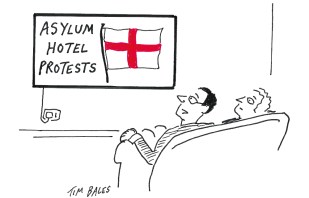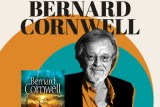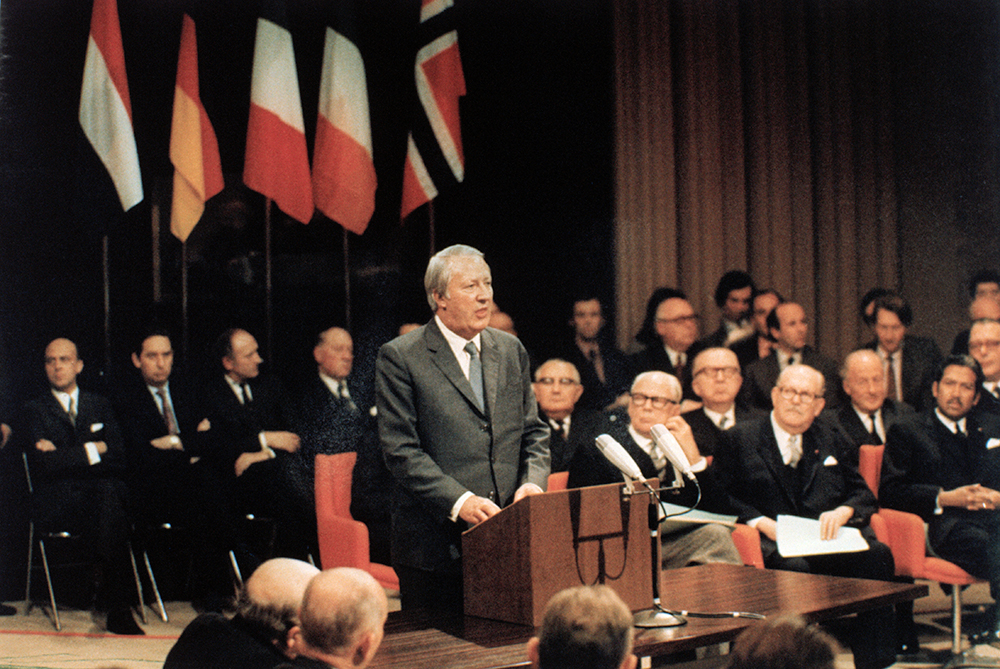Why did the United Kingdom leave the European Union? Perhaps it might be better to ask why did it ever join. Tom McTague attempts to answer both questions in this panoramic history of British – and continental – politics from 1942 to the present day. It is to the author’s great credit that he approaches a debate which has polarised politics and shattered friendships with disciplined, but never anaemic, detachment. It is hard to think of many books which leave one admiring both Edward Heath and Enoch Powell more.
McTague has set himself a formidable task in seeking to explain the two most consequential decisions of British postwar politics. That he does so not just with fair-mindedness but mastery of narrative sweep and fresh perspective makes this a significant achievement. Britain’s postwar history has been depicted in pointillist detail by David Kynaston and Dominic Sandbrook, and in more sweeping terms by Andrew Marr and Brian Harrison, so there is no shortage of accounts of how our country accommodated itself to the end of empire and the challenges of globalisation. But McTague adds significantly to our understanding of our times by tracing the centrality of Britain’s relationship with the developing European Union as a, if not the, key organising principle of our politics over the past 80 years.
Of course it might be thought that I’m inclined to elevate the importance of that relationship given the role I played in the Brexit referendum. And my ability to be truly objective about McTague’s work is affected by his having interviewed me for this history. But writing at a time when debate across the West is dominated by migration and borders, flags and identity, tariffs and trade, suspicion of unaccountable elites and concern about populist discontent makes it hard to argue that McTague’s focus is misplaced.
His story begins in Algeria in 1942-43, where Charles de Gaulle was asserting his leadership over France’s future, Jean -Monnet was incubating dreams of a Europe made safe for future generations by the eclipse of nationalisms, Harold Macmillan was applying diplomatic balm to alliance tensions and Enoch Powell was coming to terms with the twilight of the empire whose sunset drove him towards new dreams.
The focus on the political manoeuvring of elite figures might seem old school. And McTague is certainly adept at Cowlingite analysis of how individuals from Harold Wilson to de Gaulle himself manipulated events and rode currents to seize and maintain power. But this work is much more than a chronicle of high-politics positioning. It is in the main a history of ideas and their ability to move events. McTague concentrates as much on historians, philosophers and even poets as politicians. The tides which eventually took Britain out of Europe are understood at least as well by attending to Norman Stone, Roger Scruton and T.S. Eliot as they are by considering Jean-Claude Juncker, Tony Blair and Boris Johnson.
Edward Heath was the only unambiguously pro-European British prime minister
McTague shows us that the evolution of European integration was driven principally by thinkers – ideologues – such as Monnet, who never achieved conventional high office but shaped the mental world in which politicians operated. To paraphrase John Maynard Keynes, practical men who thought themselves quite free of ideological influences were the slaves of an energetic fonctionnaire. There were continental politicians who took a different view of Europe’s future from the convinced integrationists – most notably de Gaulle. But the uniquely Gallic perspective he embodied – pragmatic, realist, rooted in tradition – could not compete with the visionary approach of the federalists. Monnet and his allies constructed an explanation of the past – with nationalism the unique evil – and a teleology of the future – ever closer union as the solvent of conflict – which became the new civic religion of what had been Christendom.
That religion had its disciples in Britain; few more devoted, and braver, than the man who took us into the EEC – Edward Heath. McTague shows us just how idealistic the aloof and solitary Heath truly was – convinced of the European dream in all its transformational promise of transcending past divisions. But McTague also explains just how lonely Heath was in a political culture that generally saw European integration as an uncomfortable – un-British – departure from history which was either resisted fitfully or accommodated uncomfortably. Heath was the only unambiguously pro-European British prime minister. Labour was opposed for much of its history to the EEC and Wilson’s approach was determined as much by political weakness and economic failure as conviction. For many Conservatives the loss of empire led to a search for restored relevance and Europe apparently offered an increase in international ‘influence’ – but at a price for the national party which became increasingly hard to bear.

‘They are fast becoming something akin to a crusade.’
The British politician who most energetically shed any post-imperial delusions was Enoch Powell. For McTague he is Monnet’s alter ego, the principal shaper of the contemporary Conservative thought-world. Powell was influential as a proto-monetarist free marketeer, but he was even more consequential as the champion of the nation state – in particular parliamentary democracy – as the settlement best suited to Britain’s flourishing.
McTague examines Powell’s approach towards immigration with nuance and sensitivity, noting the calculated and opportunistic nature of his language in 1968, appreciating the role of personal ambition in his break with the party leadership, recalling the edge of asperity in his positioning but also conveying the intellectual force and integrity of his analysis and the prescience of much of his warning.
McTague also shows that Powell’s thinking was not an isolated river foaming on its own but a powerful current which was part of a tributary irrigating the Conservative mind, alongside thinkers such as Scruton, Maurice Cowling, T.E. Utley, Peregrine Worsthorne, Shirley Robin Letwin and others. Nor was he alone politically in seeing the defence of the nation state as the central battle of his political time – figures from Hugh Fraser to Ian Gow to John Biffen to, eventually, Margaret Thatcher came to the same conclusion.

Event
Speaker Series: An evening with Bernard Cornwell
The influence of these thinkers and politicians on the generation of Conservatives operating in the 2010s – David Cameron, George Osborne, Dominic Cummings, Johnson and others – is the concluding section of McTague’s work. He rightly, I think, situates their actions and reactions in a more widely populated landscape where businessmen such as Rodney Leach and Jimmy Goldsmith, historians such as Norman Stone and Andrew Roberts and journalists such as Simon Heffer and Charles Moore had influenced how Conservatives saw themselves and their country.
It will be for future historians to judge whether Brexit was an error, or whether it was our membership of the EU which was itself a wrong turning, an anomaly in our story. But one cannot understand how that debate developed without an understanding of how history itself shaped political attitudes – our understanding of war, empire, national stories, political institutions, democratic development and political accountability – as interpreted and understood by thinkers and writers. McTague has understood that it is history – not economics or even demographics – which has determined the contours of that debate and his own history of that struggle is an absorbing, authoritative, original and wise chronicle of our times.
